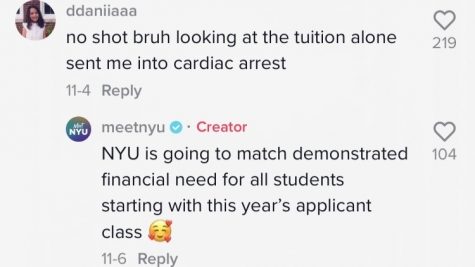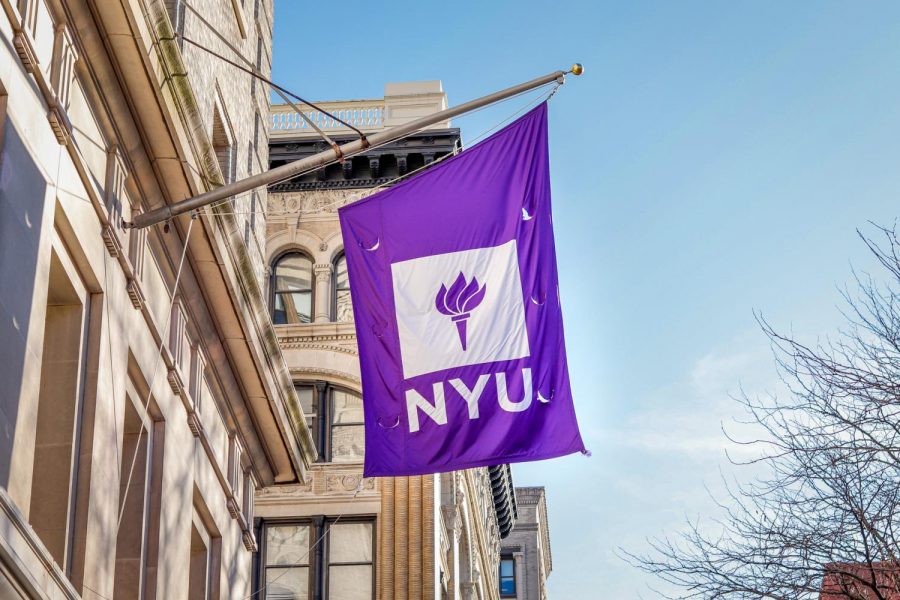NYU is now meeting 100% of applicants’ financial need
The current first-year class is the first to receive financial aid that fully meets students’ financial need, with average financial aid packages increasing by over $11,000 since last year.
NYU’s financial aid packages have met the full financial need of every student in the current first-year class. This is the first time that 100% of every applicant’s financial needs has been met. (Photo by Lauren Sanchez)
November 15, 2021
For the first time, NYU’s financial aid packages met the full demonstrated financial need of every student in its first-year class. The new policy, which started with the class of 2025, also covers international students, according to NYU spokesperson John Beckman.
Beckman added that the university expects to continue meeting demonstrated financial aid for every accepted student in the future. Until this year, NYU did not guarantee it would meet the full demonstrated need of every admitted student.
The university has not yet made a formal announcement of the change in its financial aid policy. NYU webpages mentioning financial aid continue to refer to the university’s previous policy.
MeetNYU, the social media brand for the university’s admissions office, posted a comment on a TikTok video on Nov. 6 referring to the policy change.
“NYU is going to match demonstrated financial need starting with this year’s applicant class,” the @meetnyu account wrote in response to complaints about NYU’s high tuition.

Prospective applicants and their families have also been made aware of the decision during NYU campus tours, according to multiple student admissions ambassadors.
Beckman confirmed the change, adding that the average amount of financial aid allotted to new students increased by $11,000 this year.
“With this fall’s entering class of first-years (ie, fall of 2021 entrants, aka Class of 2025), students’ financial aid packages met 100% demonstrated need for the first time,” Beckman wrote in an email to WSN. “The average financial aid package increased to $50,000 from approximately $39,000 the year before. NYU expects that first-year students in future incoming classes will also receive financial aid packages that meet 100% of demonstrated need.”
According to Beckman, the university has not decided whether it will expand the new policy to cover current students not in the class of 2025. If it does, financial aid packages for these students would likely increase.
NYU’s actual cost of attendance — found by subtracting the average financial aid award from tuition — is among the highest of its peer universities, according to the most recent financial aid data available from the 2019-20 academic year. After taking average financial aid into account, the actual cost of attending NYU was higher than Columbia University, Yale University, Fordham University and the University of Southern California in the 2019-20 academic year, the most recent year for which complete data is available.
According to Beckman, the decision to meet the demonstrated financial aid need of every new student was made last spring.
“Piloting this step was discussed with student government representatives last spring,” Beckman wrote. “Beyond this step, we’re reviewing what else we may be able to do to enhance financial aid, but given how NYU’s budget cycle works, it’s premature to discuss at this point.”

Correction, Nov. 17: A previous version of this article incorrectly referenced WSN’s previous reporting on affordability at NYU. The article has been updated to reflect the correction and WSN regrets the error.
A version of this article appeared in the Nov. 15, 2021, e-print edition. Contact Arnav Binaykia at [email protected].

















































































































































Andy • Nov 15, 2021 at 9:54 am
Will I get a refund for the high rate they charged me to cover this?